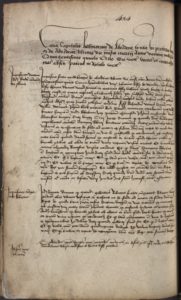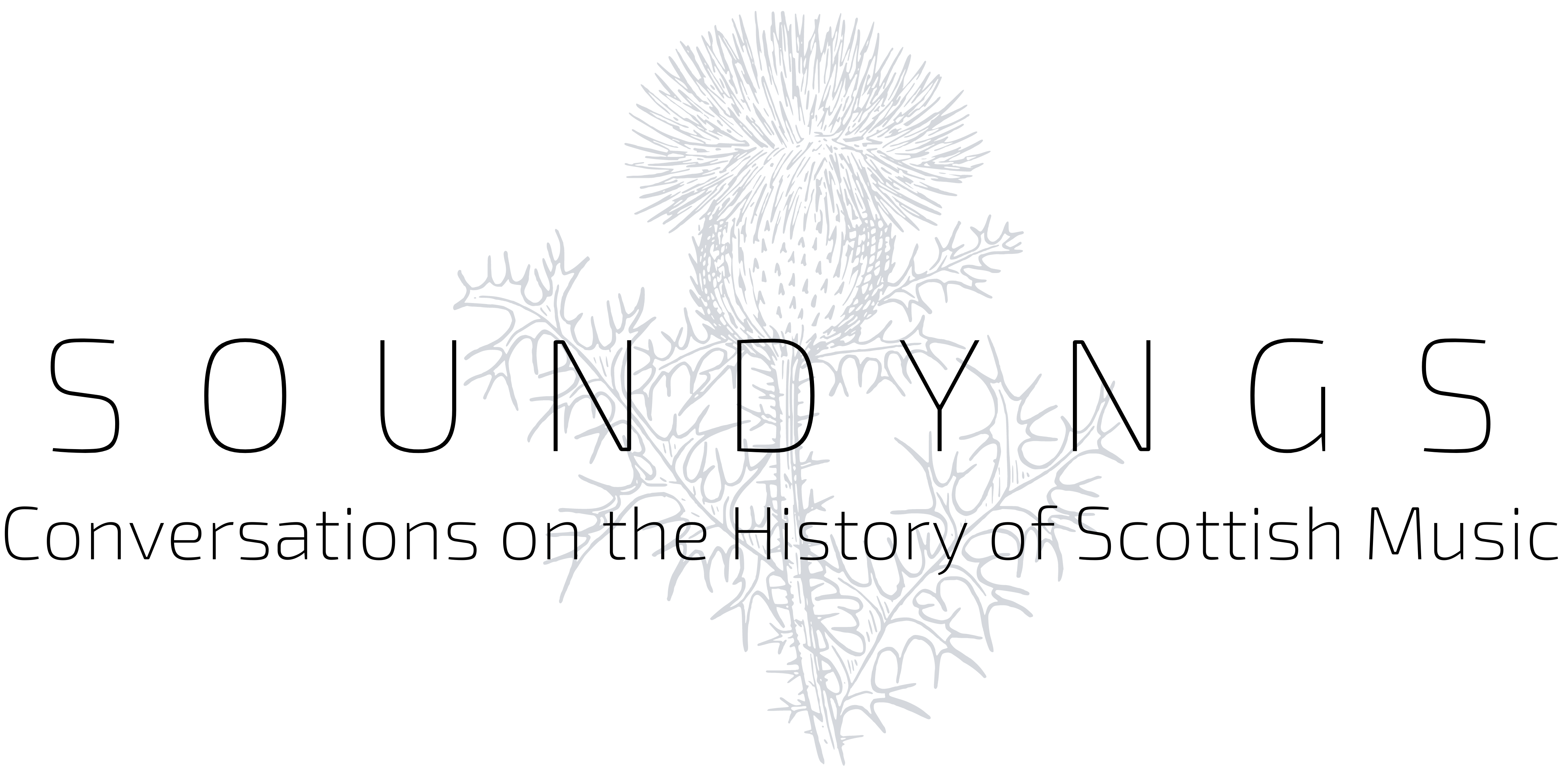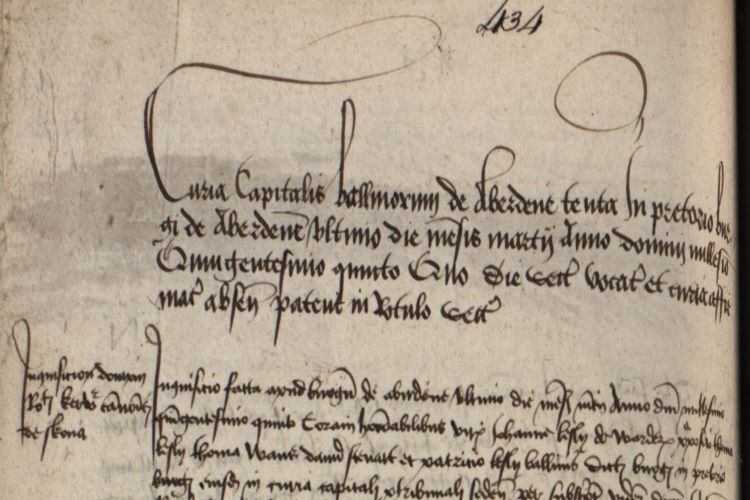For some time now it has been known that the Renaissance Scottish composer Robert Carver, spent most of his life at Scone Abbey, a fact underlined by the recent rediscovery of a Chartulary* (explored in D James Ross, “Robert Carver, Canon of Scone: New Perspectives on the Scottish Renaissance composer” in Notis Musycall: Essays on Music and Scottish Culture in Honour of Kenneth Elliott (Glasgow: Musica Scotica Trust, 2005) pp.95-114). However, the discovery by Dr John Durkan that Carver had a maternal uncle in Aberdeen turned the spotlight on the Aberdeen Records.
Below – Facsimile of a document from the Aberdeen Registers dated 31/3/1505 (CA/1/1/8 page 434 reproduced by kind permission of Aberdeen City & Aberdeenshire Archives. See in the top left margin the heading ‘Inquisicion dompni Roberti Kervour cannonici de skona’. This is the document which alerted Durkan to Carver’s possible Aberdeen connections.

The Aberdeen Registers Online project means that these documents can now be studied online, and when rehearsals of the Mass ‘Cantate’ (attributed to Robert Carver) with my choral group Musick Fyne stalled before Christmas due to Covid restrictions, I found myself with time on my hands to resume my search for Carver’s Aberdonian relatives.
In the event, my quest led in a number of unexpected directions. I was able to add several musicians to Carver’s family tree, while in effect uncovering a remarkable musical dynasty in Aberdeen. A dash of colour was added to the rather dry accounts of property transactions by the composer’s inheritance of a still for making aqua vitae and rosewater. And there was drama, as I read about the flourishing of some musical careers, and others which were cut tragically short.
The full article may be read on the Early Music Review website .
D James Ross is a singer, wind player, conductor and researcher specialising in Scottish Renaissance Choral Music and Renaissance and Baroque instrumental music. He directs Musick Fyne, the Musick Fyne Soloists, Coronach and The Marvel of Peru. He is the author of Musick Fyne: Robert Carver and the Art of Music in 16th Century Scotland (Edinburgh: Mercat Press, 1993).
*note: A ‘chartulary’ (alternative spelling ‘cartulary’) is a medieval manuscript containing a collection of legal deeds relevant to the foundation or operations of a corporate body (such as a church, town or guild), or the ownership and/or use of property by a person or family. Such documents might be copied into a register that was deposited in a place of safekeeping.

